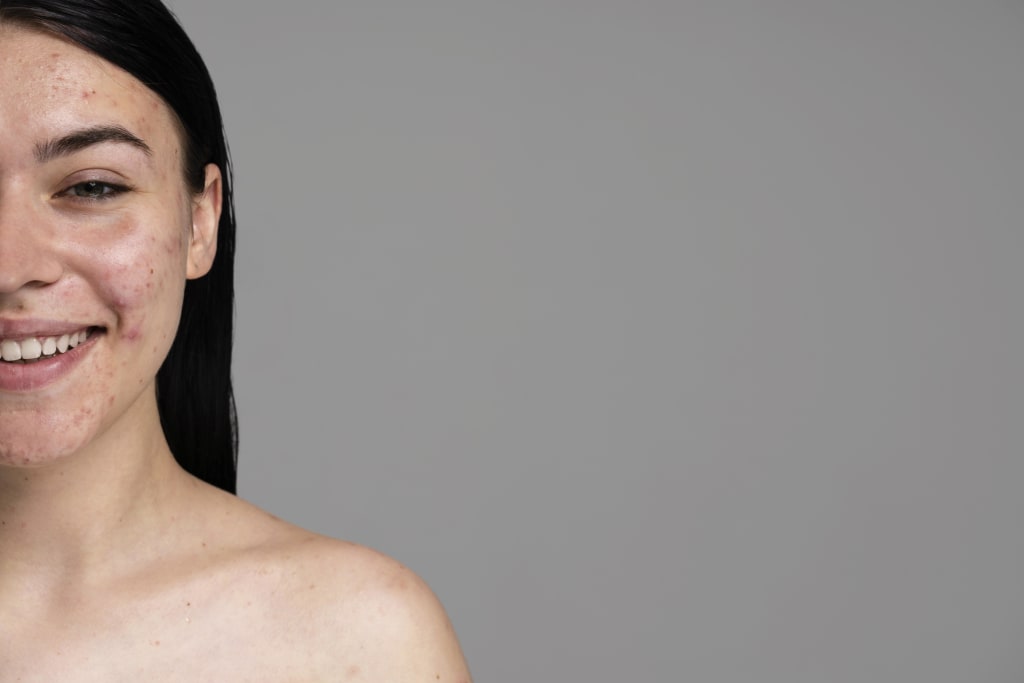Comedonal Acne: Retinoids to the Rescue
Comedonal acne is a common and often frustrating type of acne characterized by blackheads and whiteheads, known medically as open and closed comedones. This article will delve into the specifics of comedonal acne and explore the use of retinoids.

What is it?
Comedonal acne arises when pores in the skin become blocked with dead skin cells and excess oil, a substance naturally produced by the skin called sebum. These blockages, or comedones, manifest as whiteheads or blackheads, depending on whether the pore is completely or partially blocked. Diagnosis is generally based on a visual skin examination, although a dermatologist may also consider a patient's medical history and lifestyle factors.
Comedonal Acne vs. Other Types of Acne
While comedonal acne primarily presents as blackheads and whiteheads, other types of acne, such as cystic and papulopustular acne, feature inflamed blemishes. Unlike comedonal acne, these forms are typically more painful and have a higher risk of scarring. However, untreated comedonal acne can sometimes evolve into these more severe types of acne.
So, meet retinoids!
They affect the skin condition as follows:
They normalize keratinization — the thickness of the upper stratum corneum of skin cells. In acne patients, this layer is thickened.
They have a healing effect, which is necessary to reduce inflammation.
They reduce sebum production, thereby eliminating one of the main causes of acne.
They are used as external remedies for mild forms of acne and are taken orally in severe cases of the disease. Isotretinoin (roaccutane, acnetin, etc.) is used for internal administration. At the same time, the number of acne decreases, the ducts of the sebaceous glands narrow, and sebum formation decrease.
Also, we've got several ways to take retinoids: cream, serum, and injection. Let's check them all.
Retinoid Creams
Retinoid creams, like Moonrin Retinol Cream, are easy to apply and usually come formulated with moisturizing ingredients to counter the potential drying effect of retinoids. This cream also contains Hyaluronic Acid, which provides added hydration while you fight off acne.
Retinoid Serums
Retinoid serums, such as TruSkin Naturals Anti-Wrinkle Retinol Serum, also offer potent retinoids and other skin-beneficial ingredients like Niacinamide and Hyaluronic Acid. Serums are typically lightweight and fast-absorbing.
Retinoid Injections
Retinoid injections are less common and generally reserved for severe acne cases. They deliver a high concentration of retinoids directly to the problem area but can have more pronounced side effects due to their rugged nature. A healthcare professional usually administers injections in a clinical setting.
Yes, we have various methods of retinoid intake. But creams are considered to be the most frequent, effective, and risk-free.
BUT! It's important to remember about side effects. These effects may include skin irritation, redness, peeling, and increased sensitivity to sunlight. It's important to start with lower concentrations and slowly increase as your skin acclimates to the product.
What do we have by and whole?
They are usually applied at night and accompanied by sunscreen during the day because the skin is more exposed to the sun due to their renewing effect. However, there are formulations in which they are in low concentrations, protected or stabilized, which allows them to be used throughout the day.
Retinoids or vitamin A derivatives are small fat-soluble compounds that perform two main functions: antioxidant and cell renewal. Their structure allows them to penetrate the deep layers of the skin. In addition, due to their regenerating properties, they improve the pigmentation of the skin, leveling its tone.
The effect of retinoids will be noticeable as long as you apply them to your skin, so it's more of a permanent story. However, if you have added this component to your daily care only because of pigment spots or post-acne pigmentation, which have lightened during use, you can stop using it. You should also carefully select vitamin A derivatives for those with rosacea, eczema, and other skin features. It is best to do this under the supervision of a cosmetologist.





Comments
There are no comments for this story
Be the first to respond and start the conversation.